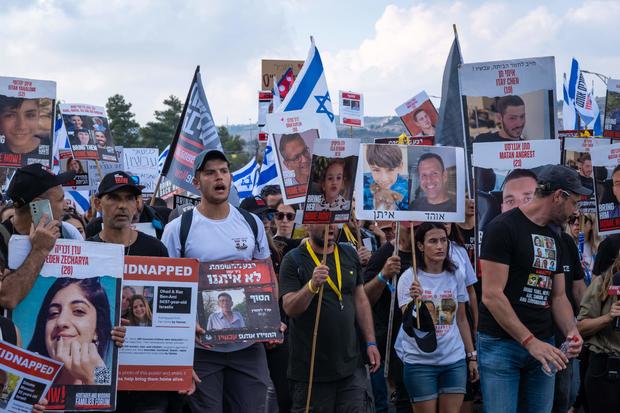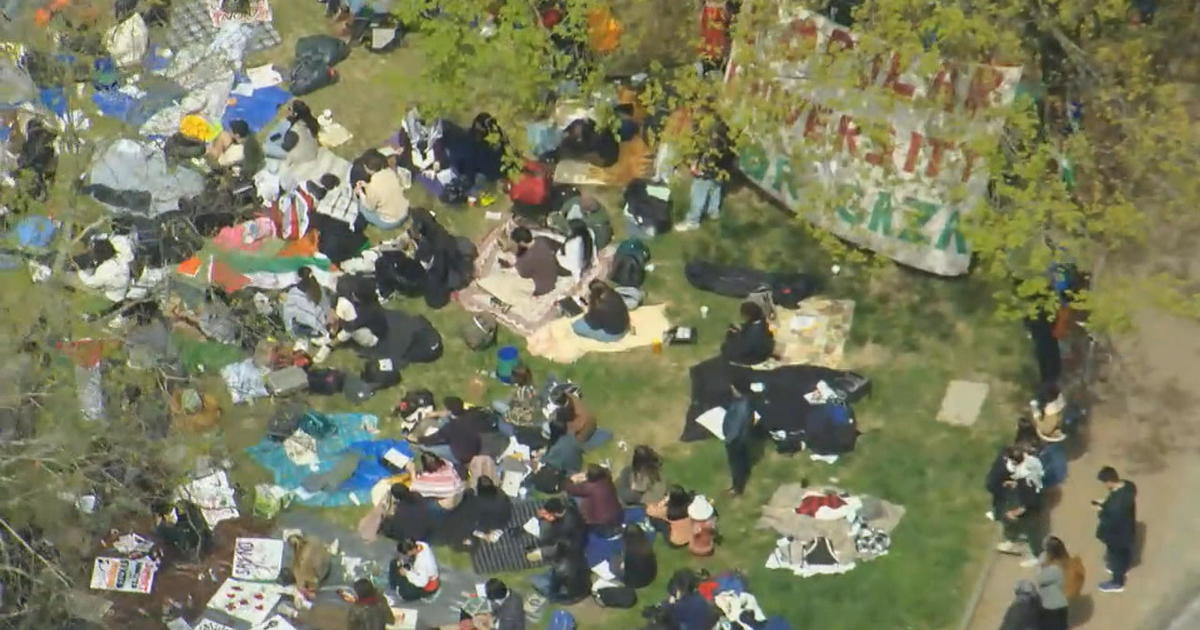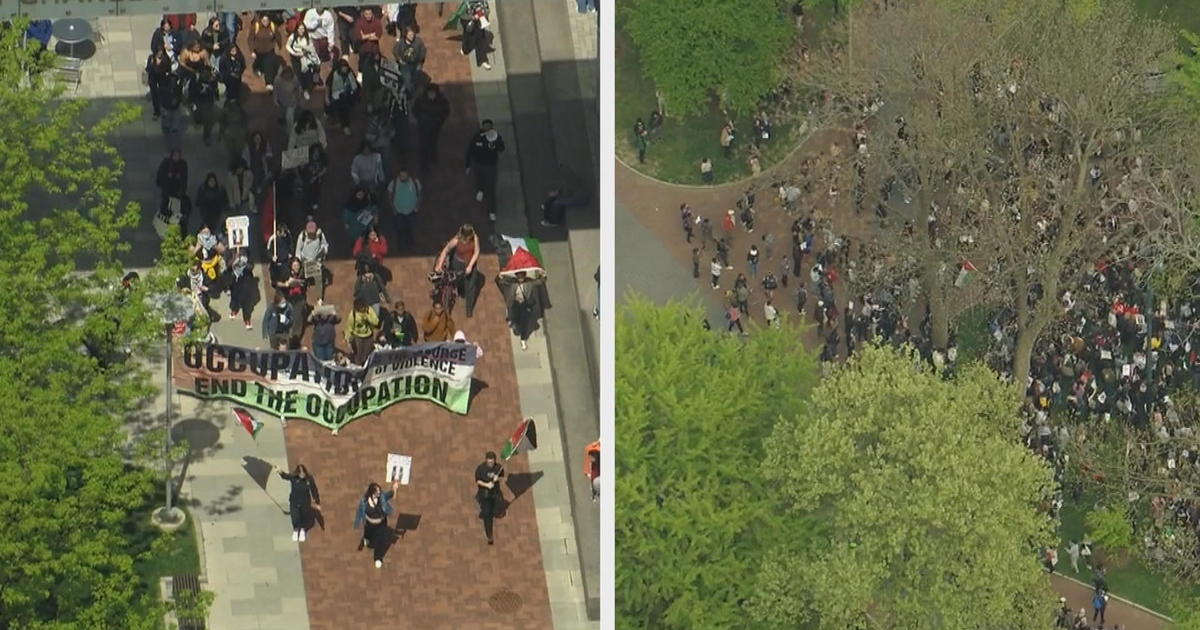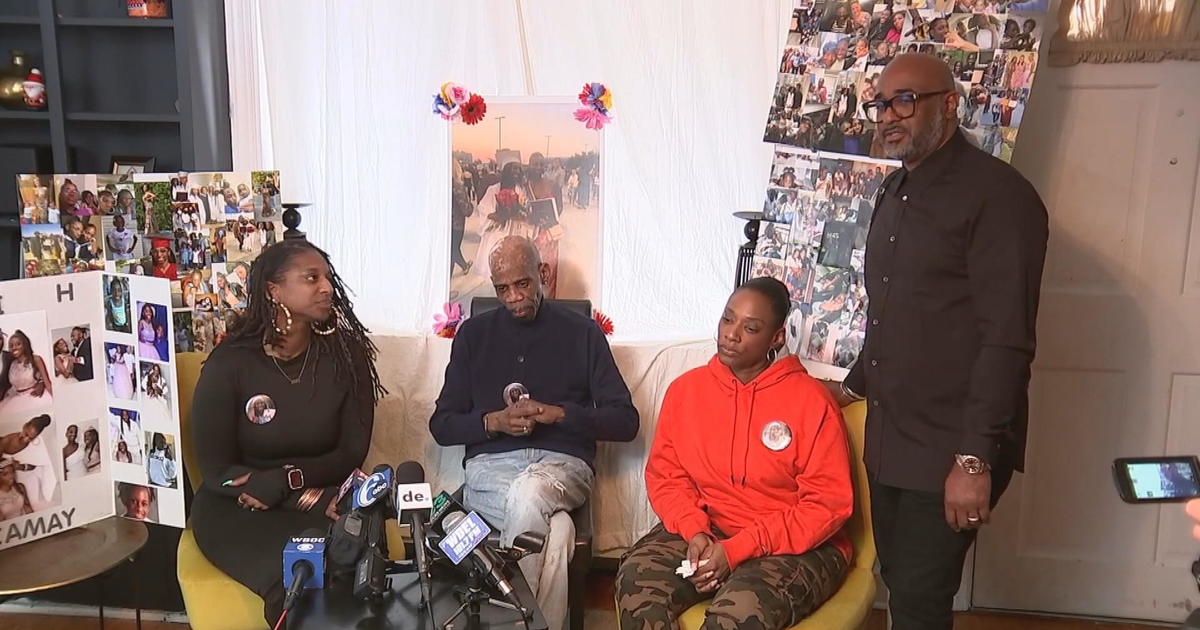Israeli government approves Hamas hostage deal, short-term cease-fire in Gaza
The Israeli government approved a deal early on Wednesday that will see the release of some of the hostages held by Hamas during a short-term cease-fire expected to begin Thursday morning. The government's announcement came after Prime Minister Benjamin Netanyahu convened his war cabinet to discuss the terms of the deal following recent progress in negotiations in Doha, Qatar.
"The Government of Israel is obligated to return home all of the hostages. Tonight, the Government has approved the outline of the first stage of achieving this goal, according to which at least 50 hostages — women and children — will be released over four days, during which a pause in the fighting will be held," the statement said, adding that "the release of every additional ten hostages will result in one additional day in the pause."
Hamas' leadership issued a statement on Telegram saying it had agreed to the deal, which it said included a "cease-fire from both parties." The group, long designated a terrorist organization by Israel, the U.S. and many other nations, also thanked Qatar and Egypt for assisting with the negotiations.
According to a senior Biden administration official, three American hostages are expected to be among the 50 women and children released by Hamas in a first wave.
A senior Hamas official in Doha, and separately an Israeli official speaking to CBS News, said the halt in the fighting was set to take effect at 10 a.m. local time Thursday, or 3 a.m. Eastern.
Hamas said on Telegram that the terms of the deal included the release of 50 Israeli women and children hostages in exchange for the release of 150 Palestinian women and children held in Israeli prisons. It said it also required a cessation of all air traffic over southern Gaza, and air traffic over northern Gaza for six hours every day of the pause in fighting, and that "hundreds of trucks carrying humanitarian, relief, medical and fuel aid" would be brought into all areas of the Gaza Strip "without exception, north and south."
According to the senior U.S. official, Qatar approached the U.S. and Israel to begin the talks on the release of hostages in Gaza, asking that a cell be established to work on the issue "very carefully, very secretly" given the "difficult process" of dealing with Hamas. The official added that Qatar "made clear from the beginning that the taking of hostages is totally outrageous and that these hostages need to be released unconditionally."
Qatar formally announced early Wednesday morning local time that a humanitarian pause had been agreed to, highlighting the success of its joint efforts with Egypt and the U.S. "The starting time of the pause will be announced within the next 24 hours and last for four days, subject to extension," the Qatari government said in a statement.
Qatar said the terms of the agreement did include the release of multiple Palestinian women and children held in Israeli prisons, adding that "the number of those released will be increased in later stages of implementing the agreement." The statement also said the terms allowed for the entry of a larger number of humanitarian convoys and for relief aid, including fuel designated for humanitarian needs, to be allowed into Gaza.
Netanyahu said in a statement before he convened his cabinet on Tuesday evening that he'd asked President Biden to join the mediation efforts personally, "in order to improve the outline that will be presented to you."
"Indeed, it has been improved to include more hostages and at a lower cost," Netanyahu said. "These talks have been productive. President Biden joined in the effort and I thank him for it."
Netanyahu said his government had made "a difficult decision but it is the correct decision," adding that "the security of our forces will be ensured during the pause and that the intelligence effort will be maintained in those days."
Mr. Biden said in a statement Tuesday night that he and first lady Jill Biden "have been keeping all those held hostage and their loved ones close to our hearts these many weeks, and I am extraordinarily gratified that some of these brave souls, who have endured weeks of captivity and an unspeakable ordeal, will be reunited with their families once this deal is fully implemented."
"Today's deal should bring home additional American hostages, and I will not stop until they are all released," Mr. Biden said.
Vice President Kamala Harris also lauded the deal, saying in a statement that the "flow of aid" to Gaza "must substantially increase and civilians must be protected."
During the pause, aid will be allowed into Gaza, with 300 trucks per day carrying supplies including cooking oil for bakeries and fuel for hospitals, a source familiar with the talks told CBS News.
The deal will allow for three Palestinian prisoners to be released in exchange for each hostage freed by Hamas, CBS News has confirmed. That 3-to-1 ratio is notable because there's no cap on potential prisoner releases, so the more hostages Hamas finds and releases, the more Palestinians will freed from Israeli prisons.
A source familiar with the talks told CBS News that most of the Palestinian prisoners would be released to live in the Israeli-occupied West Bank, though some did come from Gaza.
If the first phase goes as planned, roughly 20 more hostages will be released by Hamas and the pause in fighting would be extended.
Children, of whom there are believed to be around 40 among the hostages in Gaza, were to be prioritized in the first wave of captives released by Hamas. The only American child taken by Hamas is a 3-year-old girl.
"My highest priority is the safety and security of Americans overseas, and we will continue our efforts to secure the release of every hostage and their swift reunification with their families," Secretary of State Antony Blinken said in a statement late Tuesday night.
Netanyahu stressed in his statement before the meeting that the short pause would not mean an end to the war.
"There is a lot of nonsense out there to the effect that after the pause to return our hostages, we will stop the war. Then let me make it clear: We are at war — and will continue the war," he said. "We will continue the war until we achieve all of our war aims: To eliminate Hamas, return all of our hostages and our missing, and ensure that there is no element in Gaza that threatens Israel."
When the agreement is implemented, an operation center is expected to be set up in Doha, Qatar, to monitor the transfers. The neutral International Committee of the Red Cross is expected to take custody of the hostages from Hamas in Gaza and hand them over to the Israel Defense Forces.
Israel has said Hamas militants seized about 240 hostages during their Oct. 7 rampage across southern Israel, in which 1,200 people were killed. Only four hostages have been released by the group so far, and another, an Israeli soldier, was rescued by her fellow troops in Gaza. Israel also said two hostages were found dead near the Al-Shifa Hospital in Gaza last week.
Gabrielle Ake contributed reporting.





